- Simbatex & Aerocoil springs
- 25 cm (10 inches)
- Medium-firm
Tell me more about the Simba Hybrid
The Simba Hybrid is an award-winning hybrid pocket sprung foam mattress by Simba Sleep.
This is a medium-firm mattress that's an excellent choice for a wide range of sleepers but is particularly suited to side sleepers.
The Simba mattress is supportive enough to prevent a build-up of tension but also soft enough to allow your body to sink in where necessary.
This allows for optimal spinal alignment.
The Simba Hybrid mattress comes with an antibacterial hypoallergenic cover, which is removable and machine-washable.
The Simba comes with free delivery, a 200-day risk-free trial period, and a 10-year guarantee.
Reasons to buy
Excellent support for side sleepers |
|
Machine-washable cover |
|
200-night sleep trial |
|
10-year guarantee |
Reasons to avoid
May be too soft for larger builds |
- iGel Advance Graphene & pocket springs
- Soft, medium, or firm support
- 32 cm (12.6 inches)
Tell me more about the iGel Advance 3500imPlush Top Mattress
The iGel mattresss is designed to keep you at the perfect temperature throughout the night.
The Graphene technology absorbs excess body heat when you get too hot and releases the heat when you're too cold.
The pocket springs support the body, minimise motion transfer, and encourage optimal airflow.
The iGel Advance 3500i Plush Top mattress has a moisture-wicking cover that keeps the mattress clean and keeps you feeling fresh all night.
You'll feel optimal comfort as the gel crystals mould around pressure points and provide targeted support.
The AdvantEdge ensures you'll feel supported right up to the edge of the mattress.
Reasons to buy
10-year guarantee |
|
40-night trial period |
|
Excellent temperature control |
Reasons to avoid
You may need to purchase extra deep sheets |
|
Very expensive |
- Tempur memory foam
- Soft feel
- 21 cm (8.2 inches), 25 cm (10 inches), or 30 cm (11.8 inches)
Tell me more about the Tempur Cloud mattress
As the name suggests, these memory foam mattresses are supposed to feel like you're sleeping on a cloud.
The mattresses are topped with Tempur Extra Soft material, followed by the Tempur Support material, and underpinned by the Durabase for better stability and support.
The extra-soft Tempur memory foam allows you to sink more deeply into the mattress and offers an excellent body-contouring feel.
Working with the soft upper layers, the firmer base ensures you're well-supported.
Tempur Cloud mattresses are best suited to lighter- and medium-weight people.
All Tempur Cloud mattresses are easy to maintain thanks to their no-turn designs and removable and machine-washable covers.
Reasons to buy
100-night sleep trial |
|
10-year guarantee |
|
Soft, body-hugging support |
Reasons to avoid
Very expensive |
|
May feel too soft for heavier weights/stomach sleepers |
What is a soft mattress?
A very soft mattress can feel like sleeping on a cloud. ☁️
It snuggles the body in a marshmallow of plush body-hugging material.
Most soft mattresses are made from memory foam, wool, goose feather or other soft, fluffy fibres.
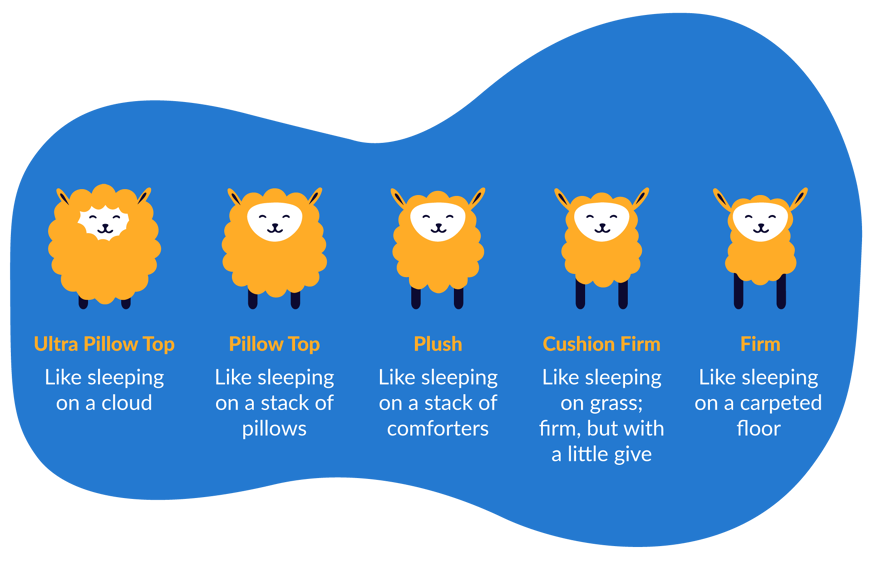
But you can also get pocket-spring mattresses with an attached soft topper for extra snugness.
We’ve recommended a range of different soft mattresses above depending on your individual requirements.
But we’ll go into detail about what those requirements might be below. 👇
Who is a soft mattress best for?
A soft mattress is best for those that want to feel "hugged in" by their mattress. 🤗
In other words, you sleep "in the bed" rather than on the bed.
But is a soft bed suitable for every type of sleeper?
In a 2011 study [1], 25 male volunteers tested soft, firm and custom-made mattresses to determine which had the best spinal alignment:
The study found that having some softness in the shoulder zone helped align the spine.
“Regardless of their body shape and weight, the existence of a soft shoulder zone will improve the spinal alignment and is therefore necessary.”
In other words, every sleeper needs a mattress with some softness to relieve pressure on the shoulders and other joints.
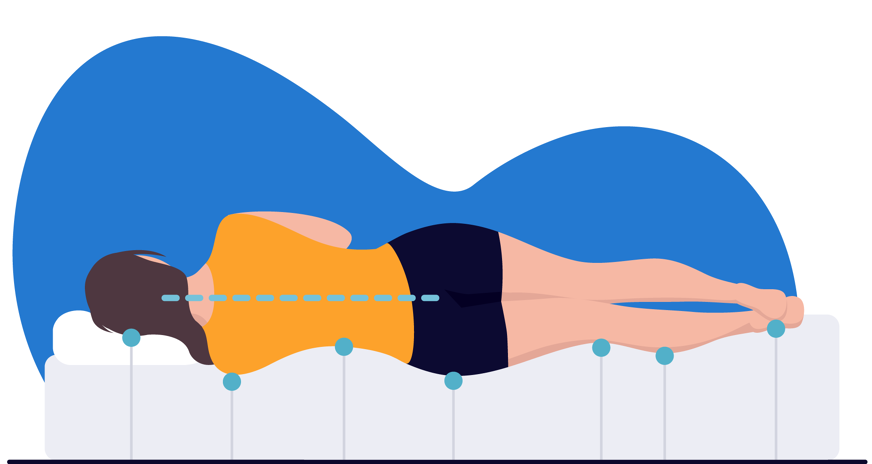
But the study concluded that the necessary overall firmness was dependent on the weight and sleeping position of the sleeper.
A super soft mattress might be suitable for a lightweight side sleeper, but this isn’t going to be the best choice for a heavyweight back sleeper.
This is because a heavier body weight will experience much more sinkage than a lighter person. ⚓
Even more, different sleeping positions require different firmness levels.
The best sleeping position for soft mattresses
Your preferred sleeping position is important when choosing a new mattress.
While most modern-day mattresses are suitable for all sleeping positions, subtle differences still make a bed more suitable for sleeping on your stomach, back or side.
Side sleepers
Side sleepers do best on a soft to medium mattress. ✅
The most comfortable soft mattress for side sleepers will hug around the shoulder and hip area whilst keeping the spine aligned with the neck.
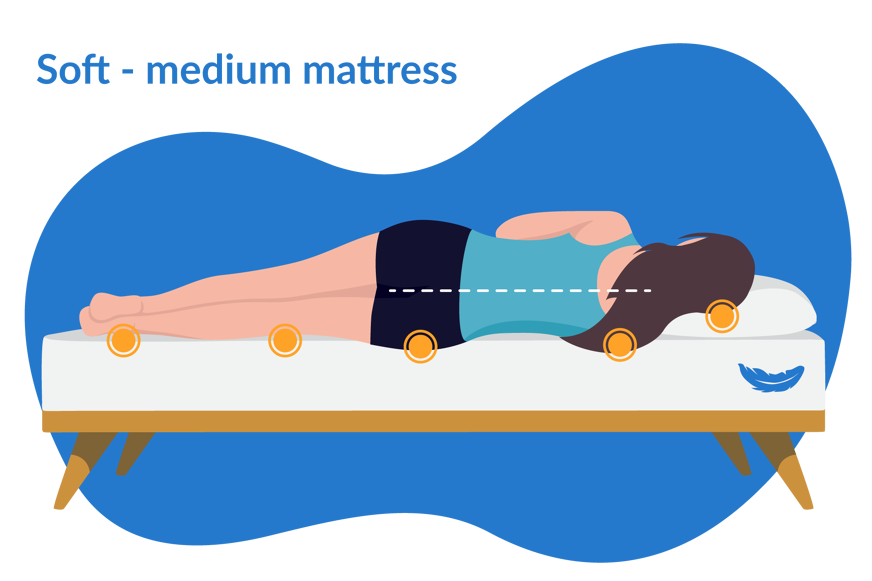
Lightweight side sleepers may find the most comfort on a very soft mattress, so they sink into the material a bit more.
The Tempur Cloud mattress is a great example of a soft mattress that cradles the body in its natural shape.
You’ll experience pressure relief on the joints, and the spine should remain naturally straight.
Heavyweight people who sleep in the side position should opt for a firmer option, as they may sink in too much and not get the support they require.
The Nectar memory foam mattress is a great option for heavier people who need a slightly firmer option which still has a contouring feel.
Back sleepers
Back sleepers will also experience comfort on a mattress with some softness.
In fact, a soft cushioning layer that hugs around the pelvic region is essential for supporting this lower part of the body.
But the mattress should be firm enough to lift the spine and prevent a "hammocking" effect.
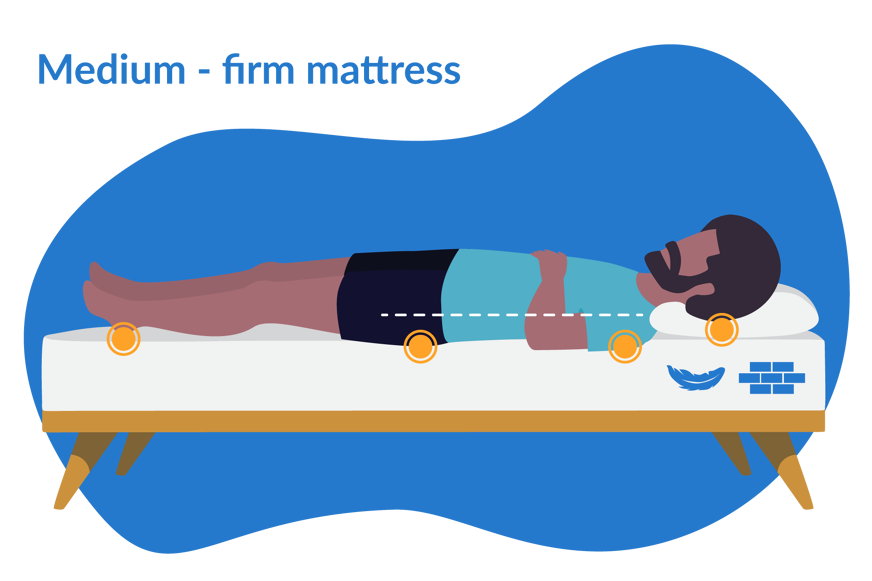
The average back sleeper will find comfort on a medium-firm mattress with a bit of plush comfort that also provides some support.
The Emma NextGen Cooling is one of our favourite back sleeper recommendations.
This advanced hybrid mattress combines soft memory foam layers with full-size pocket springs that support every inch of the body.
Stomach sleepers
A super soft mattress is unsuitable for stomach sleepers.
Stomach sleepers find the most support on a firm mattress that promotes spinal and neck alignment.
Stomach sleepers need a little cushioning for the shoulders, chest, and hips, but this should be a very thin layer of material.
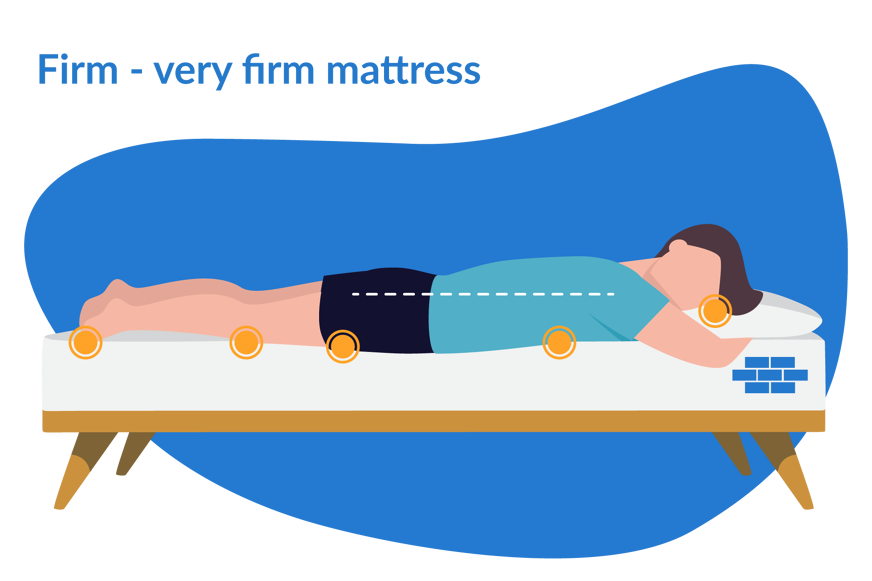
Most stomach sleepers will feel comfortable on a firm pocket spring mattress, such as the Origin Hybrid mattress.
This extra-firm mattress is made from supportive pocket springs with a memory foam layer to delicately cradle the hips and other joints.
Again, your weight and individual preference will affect the specific firmness level required for your sleep.
We would always suggest using the risk-free trial period offered by online mattress brands to see if a particular mattress is right for you. ⌛
Don't forget a good pillow
We'd also highly recommend investing in a good pillow that suits your sleeping position, which will help keep your neck and spine aligned.
Usually, for soft mattresses, you'll be better off with a slightly firmer pillow.
We've included some of our favourite recommendations below:
The difference between firmness and stability
You're likely to think that a soft mattress cannot provide enough stability and support for your body.
This isn't necessarily true. 🤔
Stability and firmness are not the same.
A very soft mattress that lacks stability may look something like this:
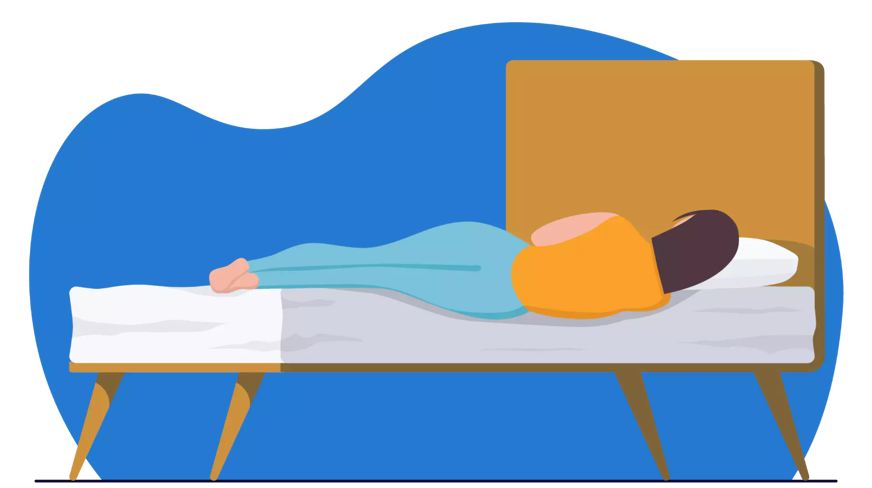
Yet, even the softest mattress can provide enough stability and support to keep your body in perfect alignment.
Ultimately, that's what you're looking for in a good soft mattress.
What is firmness?
Mattress firmness only indicates the softness or "hardness" of a mattress.
Firmness levels will correlate to the degree of comfort you feel when lying down on the mattress.
What is stability?
Stability does not refer to the mattress's firmness but indicates how well a mattress can support your body, keep your spine in an optimal position, and reduce and relieve pressure points.
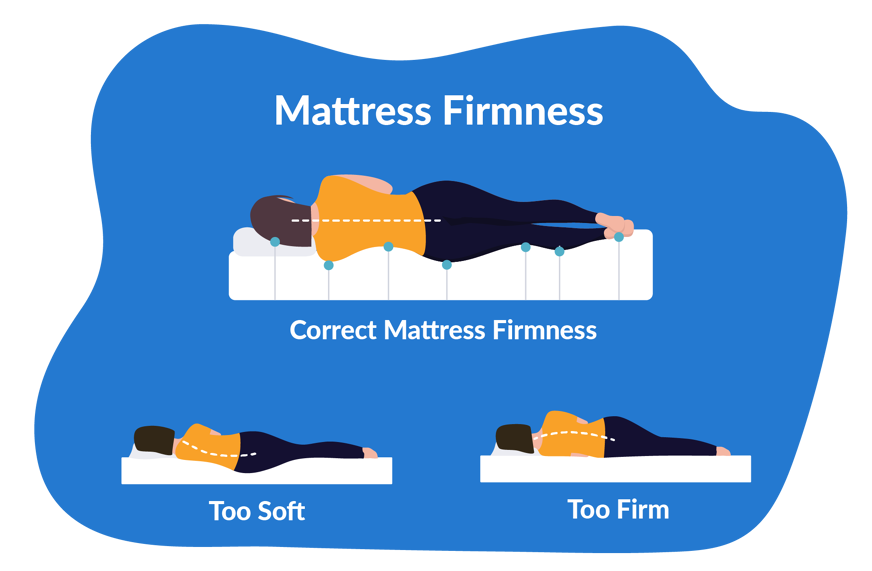
If a mattress is not able to do this, you will start to experience severe pain. 🥴
In the short term, and especially for younger sleepers, this may not be a big issue.
But, over the long term, this can have quite severe consequences.
If your mattress is causing you back pain, we strongly advise that you consider a more supportive or even an orthopaedic mattress.
Our favourite orthopaedic mattresses:
Soft mattress materials
The firmness of a mattress varies greatly depending on the materials used.
However, extra soft mattresses are available in a variety of different plush fibres that snuggle the body during sleep.
Firmness isn't the only factor to consider when purchasing a new mattress.
We'll discuss the pros and cons of different soft mattress materials below. 👇
Memory foam
Memory foam is one of the most popular mattress materials available.
Originally invented by NASA [2] to absorb pressure during space travel, memory foam is an expert in hugging around the body for soft pressure-relieving comfort.
Tempur has some of the softest memory foam mattresses available.
Take a look at how it works below:



The images show the memory foam effect on soft Tempur mattresses.
The Tempur material is so sensitive that it takes a few seconds to return to its original shape.
The Tempur Cloud is one of the best soft memory foam mattresses for those looking for unmatched pressure relief on the joints. 🦵
That's not to say that all memory foam mattresses are necessarily soft.
Ultimately, the mattress's exact firmness will depend on the brand, model, and density of the memory foam.
Memory foam is also one of the warmest mattress materials and not an option we would recommend to excessively hot sleepers.
Instead, you should choose a cooler soft mattress option, such as the iGel Advance 3000i Plush Top mattress, made from body-hugging gel layers that regulate temperature.
Both gel and memory foam mattresses are usually hypoallergenic, making them a great option for those with allergies.
Wool & feather
Wool and feather mattresses are a more traditional option, yet they're fantastic for those seeking a more sustainable choice.
Wool or feather beds provide soft relief on the body that gently cushions the joints.
Many wool and feather beds are designed with a top layer of natural fibres and a bottom layer of springs for additional support.
Unlike memory foam, wool has fantastic temperature-regulating properties. 🌡️
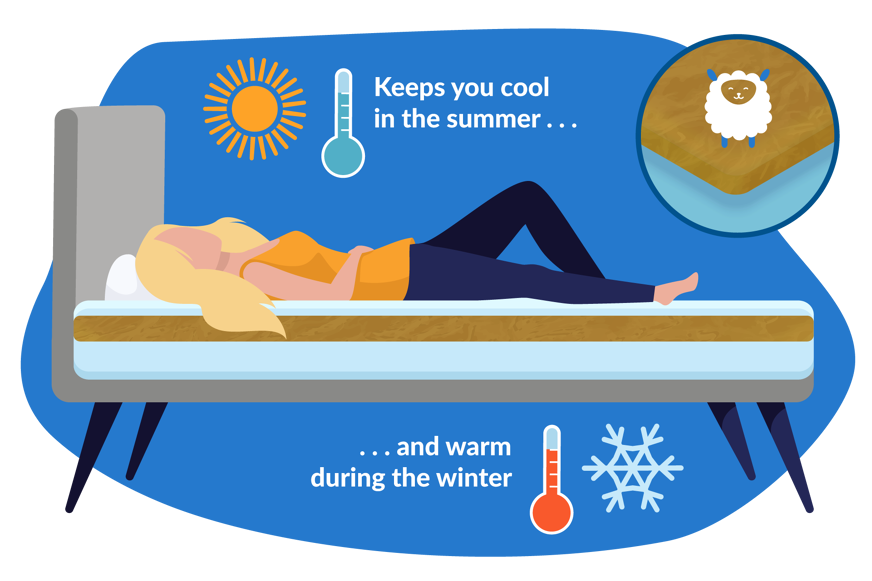
Wool fibres provide natural coolness during the summer whilst keeping you warm during wintertime.
Pocket springs
When we think about soft mattresses, we don't tend to consider pocket springs within this category.
Yet, pocket spring mattresses are available in all firmness levels.
This is because the tension of the springs can be increased or lowered depending on the firmness.
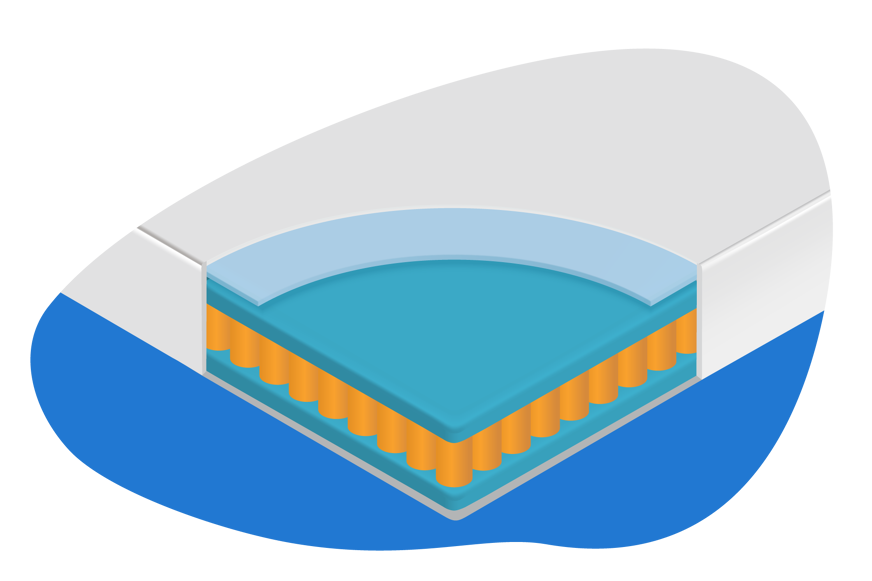
Additionally, many pocket spring mattresses have an attached pillow top to give the bed a softer feel.
The pillow top is usually made from wool, memory foam, gel, or even latex.
Pocket springs are more advanced than regular coil springs, as each spring works individually and is encased in its own pocket.
This helps to support every area of the body and minimises motion transfer. 🚣
Springs are also an excellent choice for hot sleepers, as air can flow between the gaps of the springs.
The iGel Advance 3000i Plush Top mattress is made with temperature-regulating gel layers and pocket springs:
Soft mattress sizes
Soft mattresses are typically available in all standard UK sizes.
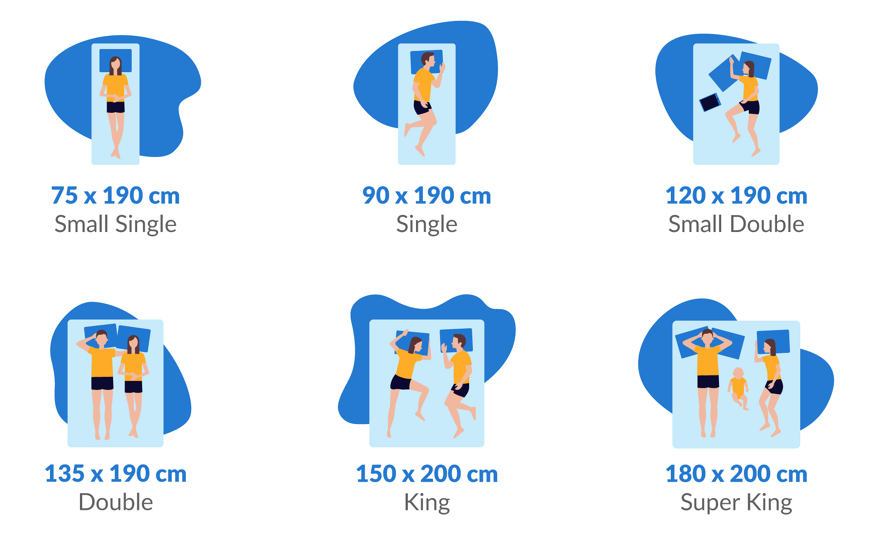
These include:
- Soft mattress single - 90 x 190 cm (3' x 6'3")
- Soft mattress small double - 120 x 190 cm (4' x 6'3")
- Soft double mattress - (4'6" x 6'3")
- Soft king size mattress - 150 x 200 cm (5’ x 6’6”)
- Soft mattress super king size - 180 x 200 cm (6’ x 6’6”)
Some soft mattresses may even be available in EU sizes.
You should check with your chosen manufacturer to see if the mattress you want is available in your required size.
Soft mattress depths
Mattresses are usually between 15 - 30 cm (5'9 - 11'8") deep.
However, some soft mattresses may be thicker than others.
Soft mattresses usually have extra comfort layers so that you sink more deeply into the materials.
If your soft mattress has a pillow top or additional layers, it could be as much as 38 cm (14'9") deep.
We recommend checking the mattress size and depth before placing an order to ensure it is suitable. 📏
Soft mattress prices
A soft mattress is all well and good - but is it affordable? 👀
Soft beds vary in price and quality, so it's essential to know you're getting a good value-for-money product.
High-quality memory foam mattresses are among the most expensive soft mattresses available.

The Tempur Cloud mattress is one of the most expensive soft memory foam mattresses money can buy, but it's also one of the best in terms of comfort and support.
A cheap soft mattress might seem like a good idea, but they often lack stability and can leave you waking with aches and pains.
We always recommend investing in the highest quality product you can afford.
Many soft mattresses also include sleep trials, so you can test the mattress before wasting your money.
Our favourite soft mattresses with sleep trials:
Soft mattress discount codes
Soft mattresses can be expensive. 💰
Luckily, many top brands have discounts on soft mattresses throughout the year.

We'll list any deals on soft mattresses throughout this article.
Likewise, our discounts page has offers on even more mattresses and sleep accessories.
You can also sign up for our newsletter for up-to-date offers and exclusive voucher codes.
How to know if my mattress is too soft
A soft mattress isn't for everyone.
If your mattress feels too soft, it may be time for an upgrade.
Mattresses tend to soften and sag over time, reducing how much support they can provide.
Your mattress may be too soft or unstable if you experience the following:
- Your mattress sags or dips
- You wake up with frequent back pain
- You feel your partner getting in and out of bed
- You toss and turn during the night
- You can feel the springs or framework of your mattress
- You sink into the mattress and struggle to get in and out of it
If any of these criteria apply to you, consider investing in a new mattress.
Our best mattress article can guide you on the mattress that suits your requirements.
Alternatively, check out our favourite mattress recommendations for a range of sleepers:
Should you buy a soft mattress?
Soft mattresses can be a great choice for a variety of sleepers. ✔️
The best soft mattresses are well-suited to the following:
- Side sleepers
- Lighter-weight sleepers
It is crucial, though, to pay attention to the following factors when purchasing a soft mattress:
- If it provides good stability and support
- If the materials are suitable
- If it is good value for money
If you're heavier, it's better to choose a firmer mattress. 👎
The level of firmness you choose will depend on your body shape, preferences, and the perfect combination of support and firmness you require.






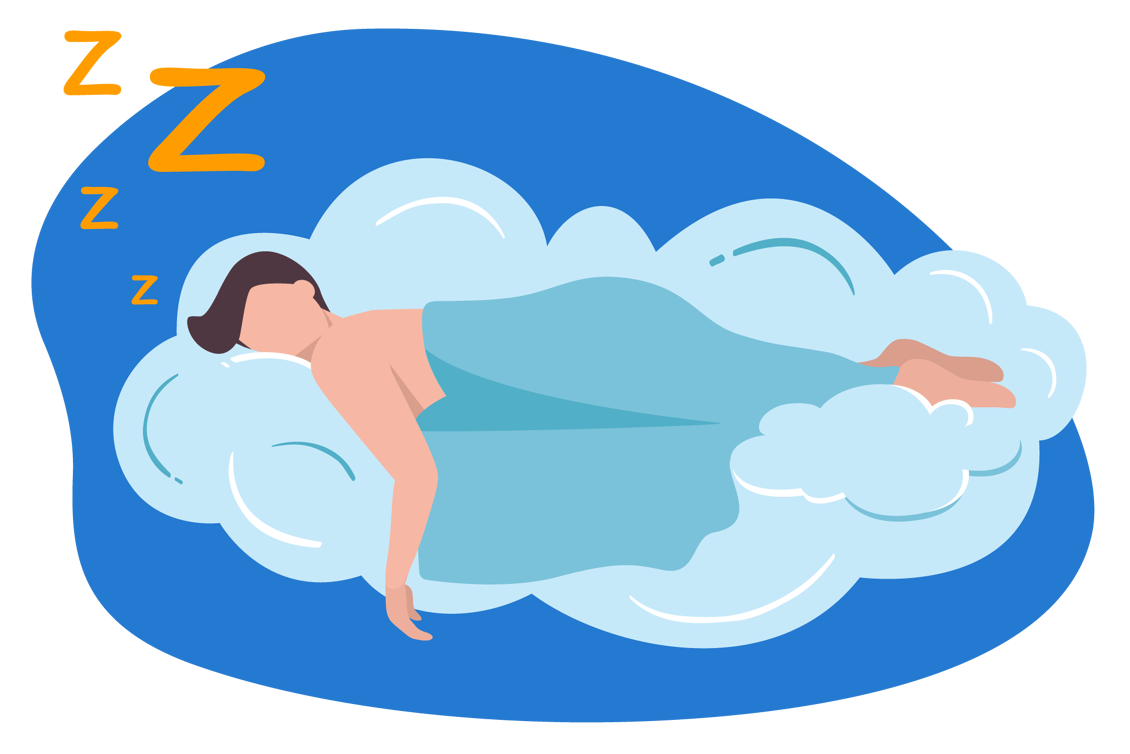
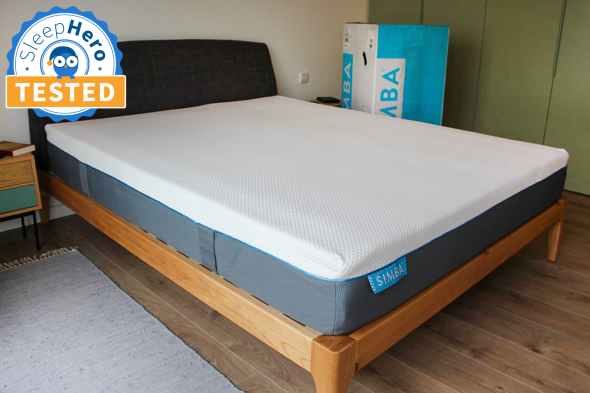



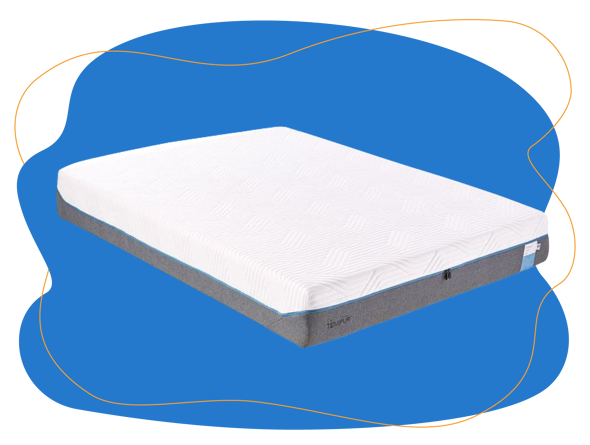

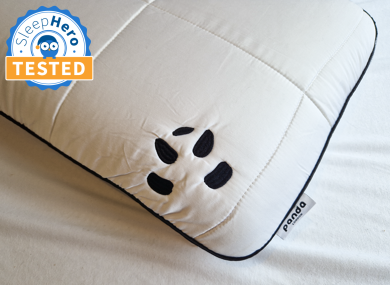










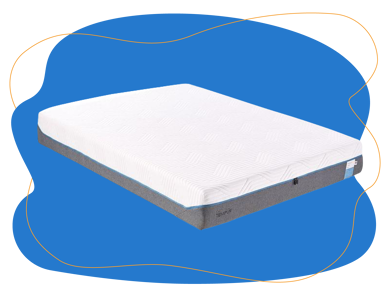
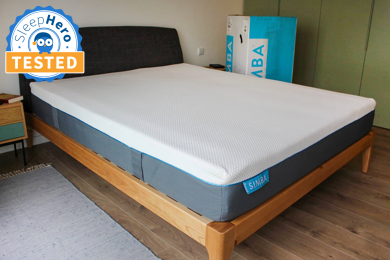
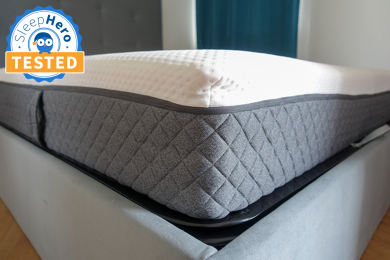
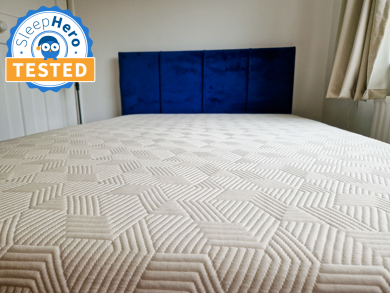
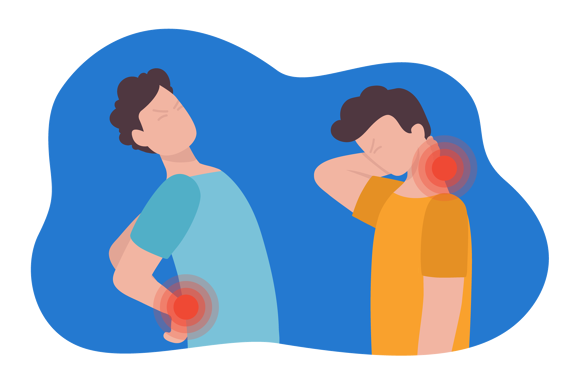




Alternatively, message us directly via the Contact Us page.